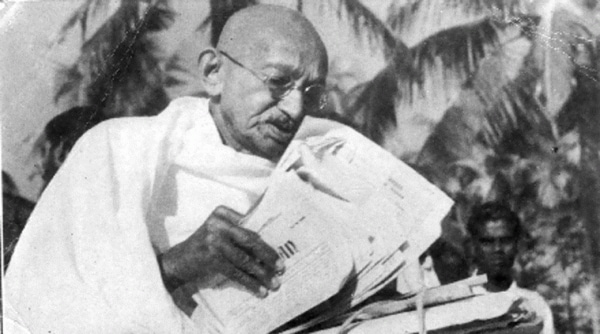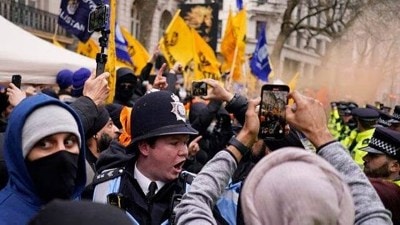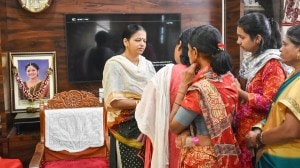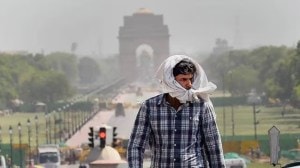- India
- International
When Mahatma saved Netaji’s revolutionaries from gallows
Book compiled with details from jail diary of freedom fighter Jyotish Basu sheds light on the only other time Bapu wrote to British seeking clemency for freedom fighter
 Mahatma Gandhi wrote seven letters to the then Viceroy of India after wife of revolutionary Haridas Mitra approached him. Haridas Mitra is the father of West Bengal Finance Minister Amit Mitra. (archive)
Mahatma Gandhi wrote seven letters to the then Viceroy of India after wife of revolutionary Haridas Mitra approached him. Haridas Mitra is the father of West Bengal Finance Minister Amit Mitra. (archive)
Mahatma Gandhi wrote seven letters to the then Viceroy of India, Lord Wavell, to commute the death sentence, and subsequently get released four young revolutionaries who were held guilty by the British of supplying information to Netaji Subhas Chandra Bose’s Indian National Army (INA).
The startling historical fact is just on of the many mentioned in the jail diary of freedom fighter Jyotish Basu who died in 2000. The diary has been compiled by renowned researcher Pallab Mitra in the form of a book —- ‘Phansi Theke Phire’ (Back from the Gallows) – and details the last few days of Basu at Presidency Jail where he was brought back from the gallows, just a minute before he was to be hanged.
The four revolutionaries for whom Gandhi sought clemency were Jyotish Basu, Amar Singh Gill, Pabitra Roy and Haridas Mitra. Haridas Mitra is the father of West Bengal Finance Minister Amit Mitra, and his wife Bela was the niece of Netaji.
All four were released in July-Agust 1946. While not much is known about the later life of Gill and Roy, Mitra joined Congress and later became the deputy Speaker of West Bengal Assembly. Basu spent his life in various social and cultural activities and died in 2000, at the age of 92.
As per the historians, the only known case when Mahatma Gandhi urged the British to commute the death sentence was for Bhagat Singh. The freedom fighter was ultimately hanged on March 23, 1931. “As far as we know it was in the case of Bhagat Singh that Gandhiji intervened,” says Sabyasachi Bhattacharya, historian and former chairman of Indian Council for Historical Research.

It was Jyotish Basu’s residence at 6A, Bipin Paul Road in Kolkata that the revolutionaries, then part of INA’s Secret Service, set up a communication centre. It was from this house that Basu was arrested on December 31, 1944 while other three were taken into custody some time later.
After a trial that lasted a few months, all four, lodged in Presidency Jail in Kolkata, were sentenced to death.
The book details the fearlessness of the revolutionaries. Asked if they had any last wish before they were hanged, Gill said he wanted to watched a dance recital by Sadhana Bose, while Basu said he wanted to hear Kanan Devi’s songs.
Bela Mitra, then 22, wife of Haridas Mitra, meanwhile, went to Poona and pleaded with Gandhiji to write to the Viceroy requesting for the release, or if that was not possible, commuting of sentence of all the four. A few days later, Basu’s father Ranjan Bilas Bose too met Gandhiji with the same request.
Gandhiji wrote seven letters requesting for release of first Haridas, and then the three others. All these letters have been kept at National Library, Kolkata.
In his first letter, dated September 14, 1945 and sent from Poona, Gandhiji wrote: “Shri Haridas Mitra, an MA of the Calcutta University, and the husband of Shri Subhas Chandra Bose’s young niece, age 22 years, is under sentence of death over what appears to be on untenable ground. I have perused the petition for mercy by the uncle of the condemned as also Advocate Carden Noad. I suggest that they furnish cogent grounds for exercise of mercy. In any event, the case for mercy becomes irresistible in that the war with Japan is over. It will be political error of the first magnitude if this sentence of death is carried into effect”.
“…My attention was drawn to the case by the prisoner’s wife as she has often sung at my prayer meetings when I had the honour of being a guest of advocate Sarat Chandra Bose (elder brother of Subhas Bose) who I am happy to learn from the government of India has ordered to be released”.
It was about five years ago that Jyotish Basu’s daughter told Pallab Mitra about the diary. “I consulted historians Amalendu Dey and Basudeb Chattopadhyay and then I got to know about Gandhiji’s letters. It was a wonderful revelation that because of his intervention four precious lives were saved from the gallows,” says Pallab Mitra.
Repeated calls and text messages to minister Amit Mitra failed to elicit any response.
Apr 26: Latest News
- 01
- 02
- 03
- 04
- 05








































